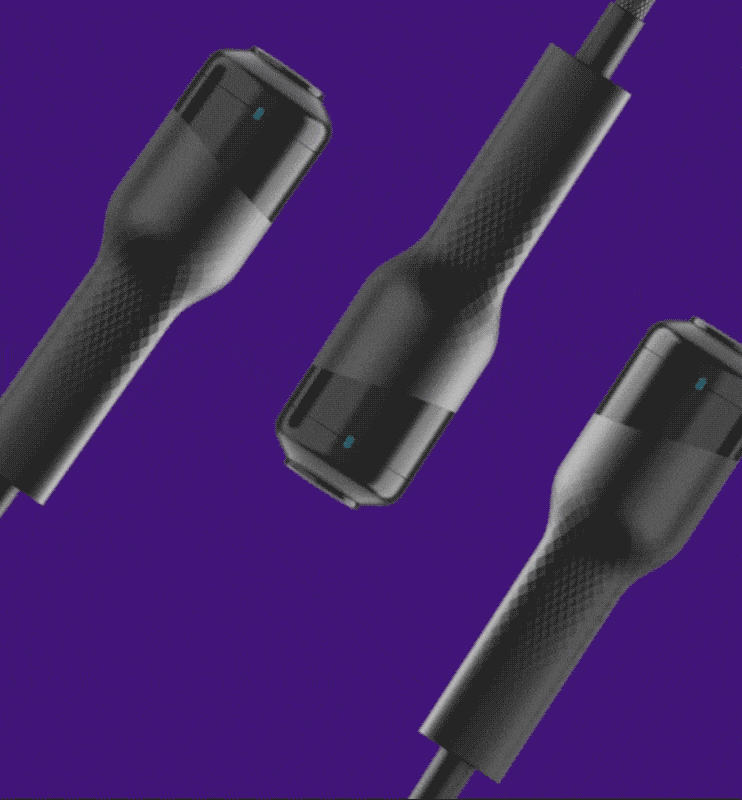Your Guide to the New Cellulite Treatment Resonic

If you’ve kept your finger on the pulse of beauty treatments, then you know there’s been a recent boom in body treatments, like contouring lasers and injectables. But for those who wish to diminish the appearance of cellulite, most dermatological treatments have failed to deliver sustainable or even dramatically noticeable results. A new innovation, called Resonic, aims to change just that. The completely non-invasive treatment works to reduce cellulite in just one session—and in just one hour.
“Consumers are always looking for treatments that use no needles, create minimal discomfort, and with no downtime so that they can go back to their normal daily activities, and with Resonic we hit all those marks,” says Brad Hauser, the CEO of Soliton, Resonic's parent company. “Cellulite effects so many people, and in our clinical study we saw a wide range of age, skin types, and tones that had good improvement across the board,” he adds.
While the treatment won’t be available until June, we asked the experts everything there is to know about Resonic before stepping into a doctor’s office.
What Is Cellulite?
First off, it’s important to note that cellulite is completely normal and does not need to treated, says Dr. Elizabeth Tanzi, a dermatologist in Washington D.C. “Typically seen on the buttocks and the thighs of women, cellulite is seen in 90 to 95 percent of women post-puberty.” Dr. Tanzi also points out that these dimples known as cellulite are not an issue of fat but of fibrous bands that connect to muscle. “When those little bands become stiff, they pull down on the muscle, which often happens after menopause or from genetics, and the fat cells get pushed around,” she adds. “In turn, it creates a dimpled appearance on the skin.”
How Does Resonic Work?

What makes Resonic unique is the new technology it utilizes called Rapid Acoustic Pulse. “The RAP technology is completely different than any other cellulite treatment to come before, because it can deliver high energy sound waves at up to 100 per second,” Dr. Tanzi explains. “The sound waves go through the skin and physically disrupt the fibrous bands, which releases the skin. This leaves a smooth appearance.”
The device is also effective in helping to removing tattoos. “When used in conjunction with laser therapy, Resonic can remove tattoos in as few as three sessions and fade the tattoo by 44 percent in a single session,” says Dr. Michael Kaminer, a cosmetic surgeon Boston, M.A. “This is contrast to the standard tattoo removal with solely laser, which typically requires 10 or more office visits to achieve the same results.”
Resonic is the first device that can disrupt fibrous bands without damaging other skin structures around them. "It selectively disrupts those fibers to lift and smooth the skin," adds Hauser.
What Does the Treatment Feel Like?
Even if you have a low pain tolerance for most body treatments, Resonic isn't painful. “There is slight discomfort, but there’s very minimal pain and that primarily comes from the heat of the laser” says Dr. Tanzi. During Soliton's tests of the device, participants rated the pain level as a 2.4 out of 10. “The best part is that there’s no lingering discomfort afterwards,” she adds. The standard length of the treatment on the thighs and buttock area is under an hour.
After the treatment, patients may notice slight redness, which is again courtesy of the heat from the RAP laser, notes Dr. Kaminer.
Should You Try Resonic?
While the technology works across the board on all skin types and tones, patients who will benefit the most from the cellulite treatment are ones with more dimples and less skin laxity. “A lot of the time women come in and want to fix their cellulite, but what we’re really looking at is loose skin,” notes Dr. Tanzi. “With the right candidate, we get about a 93 percent satisfaction rate after a single session.”
Currently, Resonic is FDA-approved for patients over 22 years old and will be available through a select network of physicians and medically supervised spas starting in June 2021.
You Might Also Like

